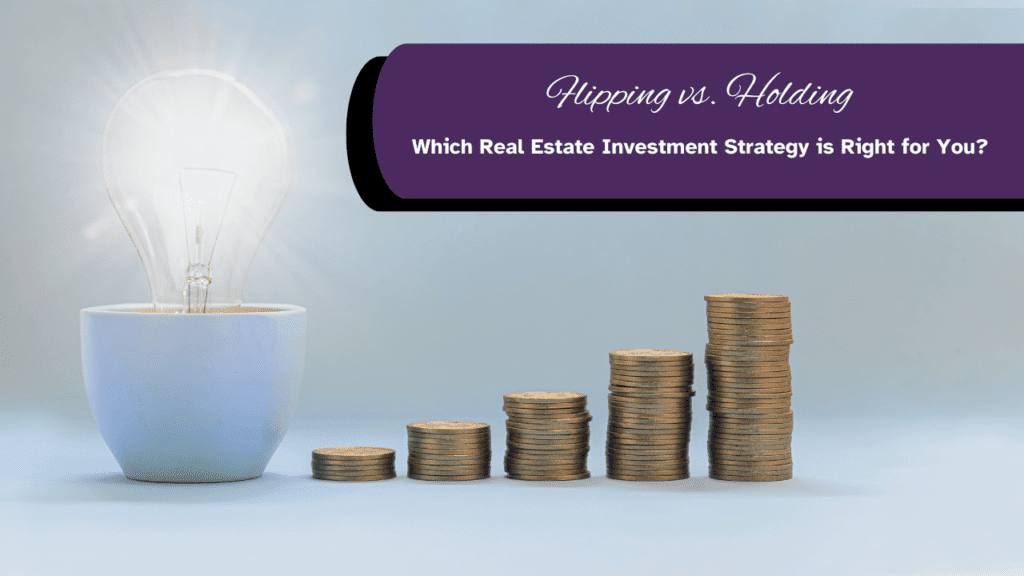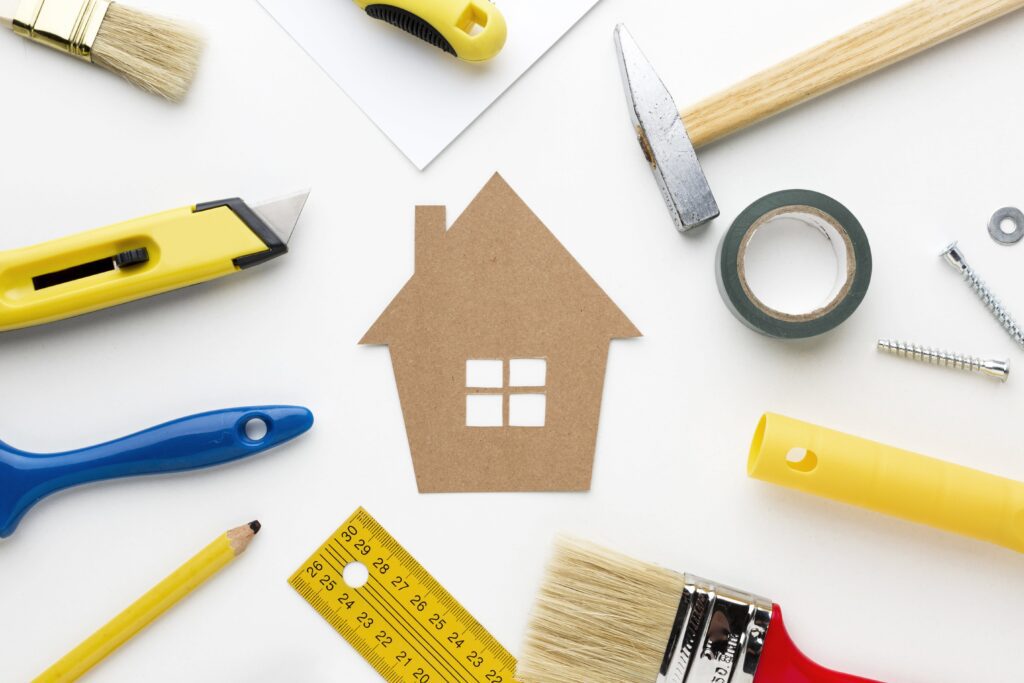
Every real estate investor is different. You should come to the market with a unique set of investment goals and ideas about what success looks like.
There’s a lot of talk about real estate investments and the potential that exists to make money. Real money. Wealth.
You hear these promises all the time. From current investors. From lenders. From property management and real estate experts like us.
We stand by that. You can make a lot of money as a real estate investor. But you have to do it right. You have to educate yourself and surround yourself with people and experts who are a lot smarter than you.
You have to know what’s too good to be true and what will lead you down a consistent path toward success.
Real estate investment, when done well, is one of the most rewarding investment options for anyone who has some money to put towards a good purpose.
So, we bring you back to the question of goals. What are your investment goals? Are you hoping to generate quick returns? Would you prefer to focus on long-term gains?
There are a lot of investment strategies that will help you make money. Typically, flipping homes and holding homes are the two most widely used real estate investment approaches.
Which one is better for you?
It depends.
That’s not a very satisfying answer, is it? But, it’s a true answer. The type of investment strategy that works best for you will depend on a number of things, including:
- The capital you have available
- Your tolerance for risk
- Your general investment goals
- Your timeline
- The market and its current and future performance
Let’s take a close look at each of these options. What it means to flip properties and what it means to hold them for the long game. Then, you may feel more empowered to decide which path is the best for you.
We Have Some Questions
 As you’re thinking about whether you want to be the type of investor who buys a property, improves it, and then re-sells it, or if you want to be the type of investor who buys a property, rents it out, and continues improving it so that it increases in value over the long term, you need to answer some very important questions.
As you’re thinking about whether you want to be the type of investor who buys a property, improves it, and then re-sells it, or if you want to be the type of investor who buys a property, rents it out, and continues improving it so that it increases in value over the long term, you need to answer some very important questions.
Here they are:
| 1. How Quickly Do You Want to Make a Profit?
When you buy a property with the intention of flipping it, you’re not planning to spend several years with that investment property. You’re planning to fix it up, sell it for a profit, and move on. With this type of strategy, you are more likely to earn your money in less than a year. You’ll see your profits show up when you sell the home for more than you bought it for. The buy-and-hold strategy is more about delayed gratification. You’ll earn a lot of money, but not right away. In fact, it may seem like you’re losing money for the first few years. Holding the property for years will ultimately deliver high returns, but you have to be patient and you have to be willing to wait. So, think about how quickly you need to see some profit. And remember – no profit is ever guaranteed. It depends on how you structure your deal and execute your plans. |
2.How Much Money Can You Invest, and What’s in the Reserve?
Each of these investment strategies will require some capital from you. Whether you’re purchasing a property flip or an investment property to rent out over the long term, you’ll be able to find financing for either path. Financing will be available, but you’ll still be expected to come up with some of your own money. When it comes to house flipping, most buyers will need to have more cash in hand. You’ll need some liquidity to be able to fix up and renovate the property, pay contractor fees, and keep up with utility bills. When you buy and hold, you’ll have to budget for renovations as well in order to get the property rent-ready. You will also have to budget for vacancy. Both options require you to bring some cash to the table but to flip a house, you’ll likely need more funds available to you. |
| 3.Is the Market on Your Side?
Market factors are difficult to avoid anytime we’re talking about real estate. This will be one of the largest profit drivers. Or, one of your largest impediments to making the money you want to make. The market and its strength or weakness can help you or it can hurt you. The real estate market won’t fluctuate too often, but it will send shockwaves across the rental market. It will impact what you’re paying for supplies, materials, and labor when you flip. Evaluate what things look like now and where they’re expected to go. The house flipping will not be affected by the market condition as the property is fixed and flipped in a matter of months. BUT the high cost of mortgages might make people less likely to be looking for a newly remodeled high-dollar home. If you’re thinking about holding your property, the local market will be especially important. You’ll need to know the average rental values, the time on market, and you’ll need to know what tenants are looking for. |
4.Are You Investing Locally or from Out of the Area?
Buying and flipping is best done when you are close to the property. Even though you’ll likely have a contracting team taking care of the nuts and bolts (unless you’re handy with a hammer), you’ll want to have eyes on the work. Investors who buy a property and plan to hold onto it can be as far away from that investment as they want to be. It’s why property managers are so instrumental. We can be the local experts. Invest in our market from Florida, Colorado, or even Japan. You don’t have to be here to make sure the paint colors are right or the bathroom is to your specifications. You can be anywhere to successfully rent out a long-term home. You have to be on-site at least once in a while when you’re flipping. |
Let’s Take a Look at Flipping

What are we talking about as investors when we talk about flipping homes?
Flipping homes is a short-term strategy where an investor will purchase a property, renovate it, and sell it for a profit.
Seems simple enough, but really, there’s a lot of strategy that goes into it. Investors will choose this route because they believe it allows you to generate quick returns. When done well and in the proper market, it can generate quick returns.
But, it’s also high-risk. Flipping homes requires a lot of work, from finding the right property for the right price to managing the renovation process, and selling it for the best returns. Things can easily run over budget. You could find yourself flipping for six months when you planned to flip for six weeks. You might not get a vendor or a subcontractor as easily as you thought you would. Their work is in high demand. You might be waiting in line.
It’s important to carefully calculate all the costs involved, including:
- The cost of purchase
- The renovation costs
- Holding costs
- Selling costs
- Commissions
The key to successful flipping is to purchase the property at a low price and sell it at a higher price that reflects its new value. The higher price has to cover the amount of money you invested in the renovations and improvements. Hopefully, there’s still some money left for your profit.
Flipping homes is a great strategy for experienced investors who have the knowledge, skills, and resources to manage the entire process.
Most investors who follow this path will tell you that there are two ways to flip homes.
| You can flip properties by purchasing a house or a multi-family property that’s listed below the current market value. These properties tend to be available because the current owner is facing some sort of financial distress. Maybe there’s a foreclosure or a bankruptcy. Or, you’re buying the property directly from the bank. This requires that the right opportunity shows up at the right time. | You can flip properties by purchasing a fixer-upper. This might even be a distressed home that’s in need of a lot of work but is offered for a price that’s considerably lower than other homes on the market. There could be simply cosmetic issues. There might be structural issues, too. You’ll create more value for this property by improving it. |
When you buy distressed properties or investments that will make great flips, you are actively working to seek out the homeowners in this market who cannot manage the cost of their property. They may be at real risk of default. This can be emotionally difficult for some people. Are you offering them a way out, or are you exploiting their suffering in order to benefit financially?
We don’t have to attach a moral judgment to it. But, you do need to be prepared for the homes you’ll be buying if you decide you want to flip a property. You cannot start with a property that’s in excellent condition. That’s where you want to take it. You’re starting with a home that probably has a sad story.
Those stories are not always dire, of course. You can also find some great flipping opportunities by looking for great homes in good locations that simply need to be remodeled. Plenty of those homes for sale can be found in the general real estate listings.
The pros of flipping a house include:
- A faster return on your money
- The potential that you’re making a safer investment than you’d be making if you used your funds to buy stocks.
When you flip a property, it usually takes around six months. That’s just a general estimate. If you’re flipping a property for the first time, it will likely take longer. If you’re struggling with your budget or to find a contractor who is ready to work, you can plan on spending more weeks or months flipping your investment property.
Your capital is only at risk for that period of time when you’re working on flipping and then selling the house. You don’t have to take on some of the risks of holding the property and renting it out, like finding tenants.
That’s a huge benefit.
However, there are some pretty major expenses that come with flipping a house, and those need to be considered too. You might be underestimating exactly what you’ll have to pay, so make sure you’re spending some time with a budget. Talk to people who have successfully flipped homes. Ask them to look at your numbers and tell you if those numbers make sense. Expenses are very often underestimated by novice flippers.
There are also tax ramifications when you turn around a property quickly. If you own a property for less than a year, expect to pay a high capital gains tax rate on the income you earn. Talk to a CPA or a tax accountant before you buy and flip so you know exactly what you’ll be responsible for.
How to Hold Homes and Why You Should
 Buying and holding homes is a long-term strategy that defines what most people renting out properties are doing. You would buy a property and hold it for a longer period, usually at least a few years. You’re in no hurry to sell the property or make a quick profit; you’re more likely to rent the property and sell it a few years later when you know you can earn more on it in a more favorable sales market.
Buying and holding homes is a long-term strategy that defines what most people renting out properties are doing. You would buy a property and hold it for a longer period, usually at least a few years. You’re in no hurry to sell the property or make a quick profit; you’re more likely to rent the property and sell it a few years later when you know you can earn more on it in a more favorable sales market.
Holding homes might not deliver the immediate financial reward that flipping houses does. But, it’s also a lower-risk strategy that allows you to build equity over time. Holding homes doesn’t require as much intense work in a short period of time as flipping homes, but it requires patience and planning. You need to carefully analyze the property’s potential for long-term growth and cash flow. Holding homes is a great strategy for investors who want to generate passive income and build long-term wealth.
The major point in the pro column, when we’re talking about a buy-and-hold strategy, is that you have ongoing income. You’re earning passive income consistently without working too hard for it. You could be halfway around the world or working another full-time job entirely and still earning income on a rental property.
There’s also the advantage of appreciation. The value of your property will continue going up, and the longer you hold it, the more money you will ultimately make from it. Depending on the real estate market and the general economy, you can count on earning more in the long term than you would flipping homes in the short term.
Let’s not forget the tax advantages to buy and hold. Your rental property counts as investment income, so your tax rates are lower, and you can write off the expenses that are associated with keeping the property maintained. You can write off professional services such as property management, and you can claim depreciation.
The buy-and-hold strategy reduces risk, but it’s not completely without risk.
You may have difficult tenants. You may have to evict. You might see the market tank and the tenant pool dry up. You might face a long vacancy.
A Snapshot of Pros and Cons
Let’s break it down.
| Flipping |
Pros
|
Cons
|
| Holding |
Pros
|
Cons
|
Flipping homes and holding homes are viable real estate investment strategies. The right choice for you depends on your investment goals, your financial goals, and your current financial position.
Flipping homes requires more work, knowledge, and resources to successfully execute and involves a higher risk. Holding homes is a long-term strategy that requires patience and planning but offers lower risks and the opportunity to generate passive income and build long-term wealth.
Determine your real estate investment goals and evaluate your personal situation to determine which strategy is right for you. Then, reach out to a professional property management company like ours. We have a lot of knowledge and expertise when it comes to real estate, rental homes, and everything that comes with the industry.
Please contact us at Realty Solutions if you want to talk about your next steps. We lease, manage, and maintain homes in Audubon, Collingswood, Cherry Hill, Haddon Heights, Blackwood, and the surrounding communities.
